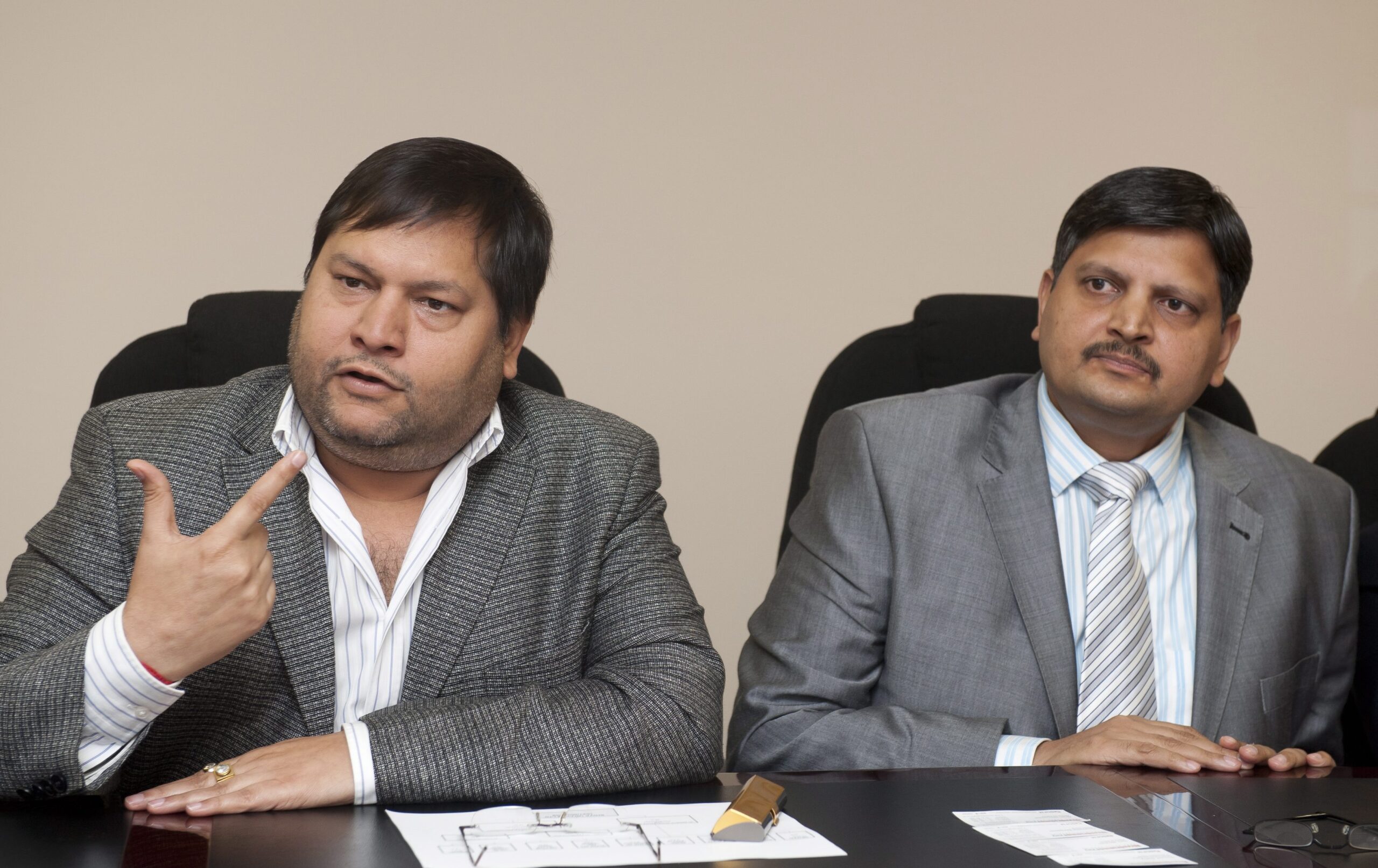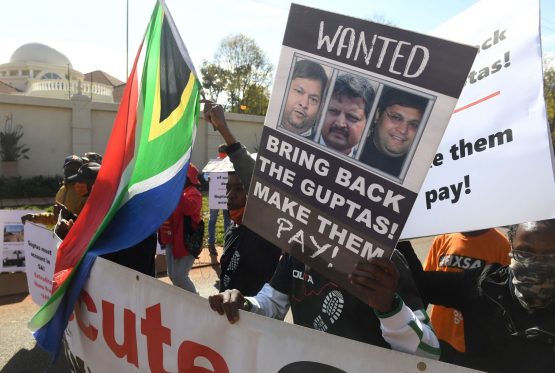
‘The reasons provided for denying our request are inexplicable,’ the South African justice ministry said.
A court in the United Arab Emirates denied South Africa’s plea to extradite Atul and Rajesh Gupta, the brothers wanted in the African nation on charges of money laundering and fraud.
The arrest warrant against the Guptas has also been cancelled, Ronald Lamola, South African minister for justice and correctional Services said in a briefing on Friday. The court said that the India-born brothers were citizens of the Pacific island nation of Vanuatu, Lamola said, adding that South Africa plans to appeal.
The UAE said the request did not “meet the strict standards for legal documentation.” South Africa could resubmit the extradition request with new and additional documentation, state news agency WAM said citing the UAE justice minister.
The Guptas were arrested in the UAE in June after Interpol placed them on its most-wanted list. A judicial inquiry into state graft spanning more than three years detailed close links between the brothers and former South African President Jacob Zuma. Witnesses allege they worked together to siphon money from South Africa’s state transport, power and arms companies, and jointly decided who was appointed to the cabinet. Zuma and the Guptas have denied wrongdoing.
“The reasons provided for denying our request are inexplicable,” the South African justice ministry said in a statement. “This level of non-cooperation is highly unprecedented in the arena of extradition requests.”
Timeline of South Africa’s extradition request:

Last year’s arrests raised expectations for the Guptas to be extradited to face justice in Africa’s most-industrialised nation. Companies targeted by the Guptas, including state power utility Eskom and logistics firm Transnet, are still reeling from the alleged fraud and are slowing South Africa’s economy in the process.
The Guptas first came under scrutiny in 2013 when it was found that the family had been allowed to use a secure military base to land a plane ferrying wedding guests, and then were given a police escort to a lavish event at Sun City, the casino resort about two hours west of Johannesburg.
By 2016, former public protector Thuli Madonsela was asked to probe the dealings between Zuma, the Gupta family, and state-owned entities. Her 355-page report, called “State of Capture,” was damning. With Zuma still clinging to power, a vast trove of emails and documents between the Guptas and their associates was leaked in 2017, and by early 2018, the Guptas had fled the country.
President Cyril Ramaphosa’s administration first asked the Emirati authorities to extradite members of the Gupta family in 2018, and the US imposed restrictions ranging from visa bans to asset freezes on them the following year. The UK followed suit last year, and Interpol placed the brothers on its most-wanted list.
South Africans expect justice and authorities will leave “no stone unturned” in seeking it, said Shamila Batohi, national director of public prosecutions at the National Prosecuting Authority. “We don’t know if the Guptas will ever face justice.”
The brothers have applied for asylum in Cameroon and the Central African Republic, and were seen in Switzerland in late March, Africa Intelligence said in different reports this week, without citing anyone.
Lamola said the UAE court cited procedural technicalities when making its decision, but that South Africa had followed due process and could have been contacted to clarify any matters.
“A technical issue can’t be used as a reason to deny an extradition request,” Lamola said. “We will exhaust our engagement with the UAE, but we will pursue all avenues, even at the UN multilateral level.”
© 2023 Bloomberg

